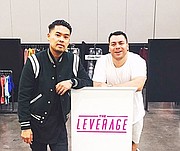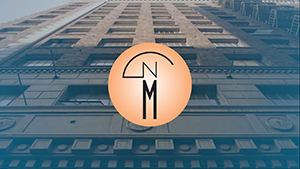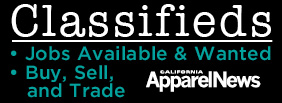THE LEVERAGE
The Leverage Makes Millions from Overlooked Market
During a time when conventional wisdom says that retailers are not making big merchandise orders, The Leverage fashion house reported making millions of dollars from an overlooked boutique market.
Leverage, headquartered in Irvine, Calif., started business in 2014 selling men’s denim tailored to urban markets. People living in these markets may live a long drive away from a mall and fast-fashion stores such as Zara and Forever 21.
Chris Ngo, the co-owner of Leverage, said his company made $20 million in revenue in 2016. He forecast that it would make $24 million in revenue in 2017 on a business founded on serving independent boutiques in minority neighborhoods, a market that is ignored and often misunderstood, Ngo said.
“When Magic Johnson started doing business, like putting a Starbucks in the ’hood, no one understood it,” Ngo said of the former Los Angeles Lakers star opening a Starbucks location in South Los Angeles in 2006. “But there is a lot of money out there, and people want to keep it there.” Residents of urban neighborhoods are loyal to their independent boutiques, he said.
Manuel Jackson, a Los Angeles–based African-American entrepreneur, designer and founder of The Gents Closet, agreed that the urban market continues to be ignored more than a decade after Johnson’s initiative to bring more businesses to minority areas.
“If you go to trade shows and tell people that your store is in the ’hood, people won’t sell to you. They think your demographic does not have money,” Jackson said. “But the African-American community spends a lot of money on fashion.”
In 2014, Leverage introduced Embellish, which Ngo described as a progressive denim line. With retail price points of $100 to $160, it offers looks such as motorcycle-style denim and jeans with treatments such as wax coating, acid wash, dip dyes and paint-splatter styling. It also offers a wide range of sizing. Many men’s brands don’t make pants for waists larger than a 38. Embellish offers waist sizes from 28 to 44. Because of the unique looks and wide variety of sizing, Ngo said that Embellish has been placed in retailers such as Selfridges in London. NBA stars such as Chris Paul, Isaiah Thomas and D’Angelo Russell have been spotted in Embellish jeans. Embellish has a 45- to 60-day cycle from design to appearing on shop floors. The speed to market helps Leverage’s retail partners work at a fast-fashion pace.
Leverage also aims to serve other markets. In 2015, it introduced Crysp, a denim line for a younger man who shops at specialty shops. While Crysp shares some design DNA with Embellish, it retails for a lower price point, $40 to $70. It has been sold at retailers such as Zumiez and Jimmy Jazz. Also in 2015, Leverage acquired men’s fashion line Lifted Anchors, which offers new looks every two weeks. Mostly shirts and jackets, the line’s retail focus is direct-to-consumer at www.liftedanchors.com, but it also has been sold at Karmaloop, the streetwear-focused e-commerce shop headquartered in Ontario, Calif., and at Australian boutique chain Culture Kings. Leverage’s other brands include boot collection Foundation Footwear, which it has sold at Pacific Sunwear, and Haus of JR, a line of high-end clothes for toddlers.
In 2016, Leverage also expanded from a 5,000-square-foot warehouse in Irvine to a 20,000-square-foot warehouse, also in Irvine. Ngo said the 40 people working at Leverage handle the company’s design, production, sales and logistics. Ngo and Leverage co-owner Lee Ramirez wanted to do everything on their own after being burned time and again as independent sales representatives.
In 2012, Ngo and Ramirez opened Leverage as a sales agency. “It was years of helping build brands, and once we got them to big doors and when the contract was up, [brands] wouldn’t renew.” Ngo said. “We’d always have to panic and look to the next brand, the next brand, and at the end of the day none of them were loyal. I get it. It’s business, and it is cutthroat. But my partner and I were over doing it.”
They learned to design and produce clothes while making their first collection for Embellish. Ngo said that they gained wisdom by making every mistake in the book. To learn about logistics and fulfillment, a consulting company helped guide the development of Leverage’s logistics section.
Leverage anticipates introducing a couple of new lines by the end of 2017. But the company doesn’t plan to seek a higher profile. “Orange County is overlooked. We’d be two times as big if we moved to LA.”
But Ngo said he will remain an Orange County guy. He grew up in Orange County, and all of his friends and family live there.






















